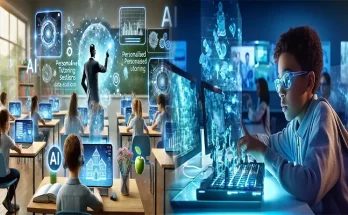In today’s rapidly evolving world, education systems face the challenge of preparing students for a future that is characterized by constant change, technological advancement, and global interconnectedness. As we look to the future, it is essential for educators and policymakers to consider the skills and competencies that will be most critical for success in the modern world. Here are some key future skills that are increasingly important in modern education systems:
1. Critical Thinking and Problem-Solving
In an era of vast amounts of information and complex challenges, the ability to think critically, analyze information, and solve problems creatively is more important than ever. Modern education systems need to prioritize the development of these skills to empower students to navigate the complexities of the modern world and make informed decisions.
2. Collaboration and Communication
With the rise of global communication networks and virtual collaboration tools, the ability to work effectively in teams and communicate across cultures and languages is a crucial skill for the future workforce. Modern education systems should emphasize collaborative projects and communication skills to prepare students for success in a globally connected world.
3. Digital Literacy
In an increasingly digital world, proficiency in technology is no longer optional—it is essential. Modern education systems need to teach students how to critically evaluate digital information, use technology for learning and productivity, and adapt to rapidly changing digital tools and platforms.
4. Creativity and Innovation
As automation and artificial intelligence continue to transform industries and job markets, human creativity and innovation are becoming more valuable than ever. Modern education systems should foster creativity, encourage experimentation, and nurture the entrepreneurial mindset to prepare students to adapt and thrive in an ever-changing landscape.
5. Adaptability and Resilience
In a world where career paths are no longer linear and unexpected challenges are the norm, the ability to adapt to change and bounce back from setbacks is a critical skill for success. Modern education systems should focus on building resilience, teaching flexibility, and instilling a growth mindset in students to help them navigate uncertainty and embrace lifelong learning.
6. Cultural Competence and Global Awareness
In an increasingly interconnected world, cultural competence and global awareness are essential skills for meaningful communication and collaboration. Modern education systems should prioritize the development of cultural intelligence, empathy, and an understanding of diverse perspectives to prepare students to engage effectively in a globalized society.
As we look towards the future, it is clear that modern education systems must evolve to equip students with the skills and competencies they need to succeed in a rapidly changing world. By prioritizing critical thinking, collaboration, digital literacy, creativity, adaptability, and cultural competence, education systems can empower students to thrive in a future where innovation, global awareness, and lifelong learning are the keys to success.





